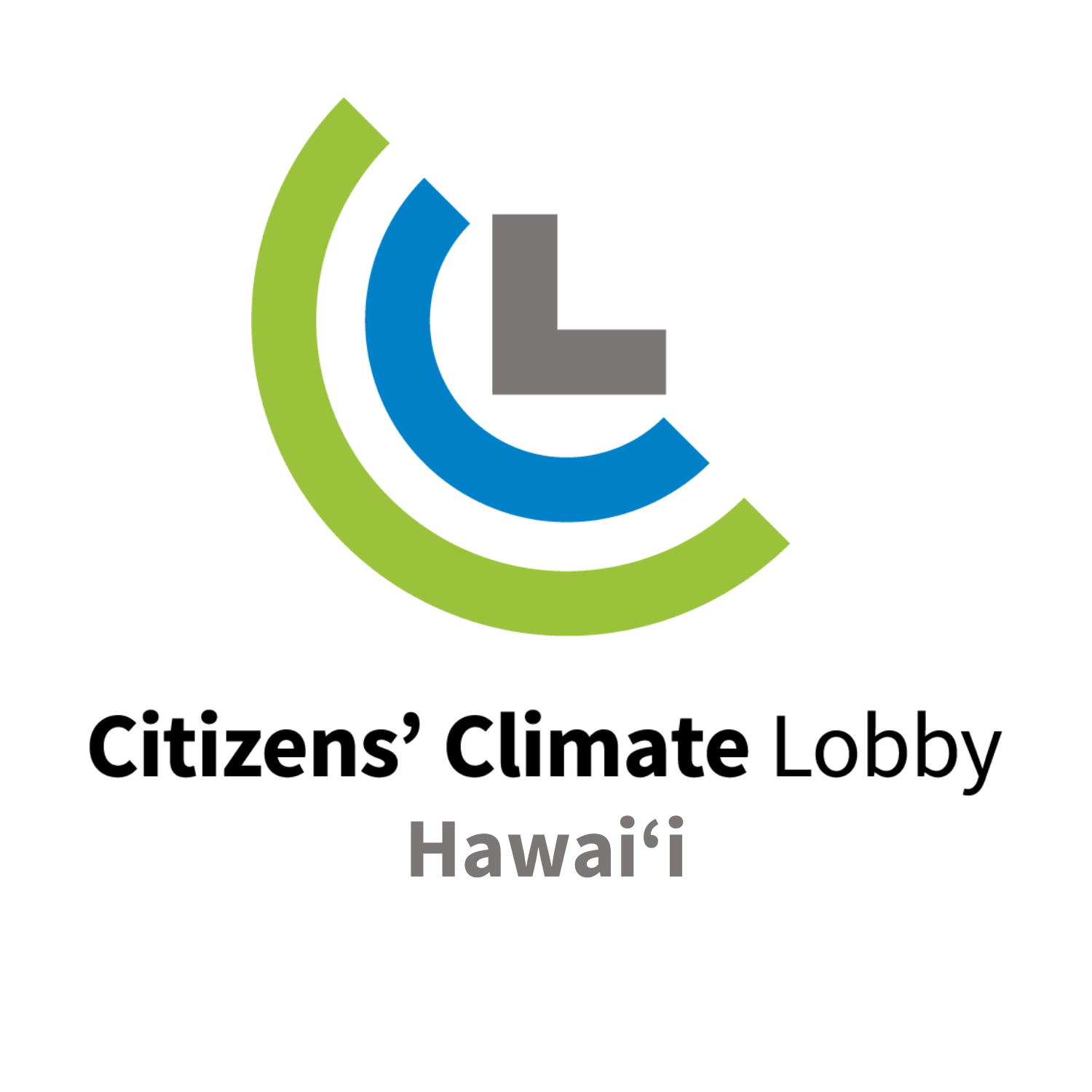
Support Carbon Cashback
Together, we can effectively address climate change.
Photo courtesy of Peter Caldwell
Carbon Cashback will have to wait for the next session…
Efforts to have House Speaker Saiki re-refer HB1146 to the Finance Committee have failed. Thanks to all who signed our open letter to Speaker Saiki.
Sadly, all four carbon cashback bills introduced this session have died, and we've lost the opportunity this year for a policy that would have effectively reduced emissions while providing economic benefits to our low-to-middle-income families. While we did not prevail in this session, we will continue to pursue a carbon cashback policy, locally and nationally.
What’s Next?
Speaking of national carbon cashback, there is an effort in the legislature to pass a resolution to encourage Congress to adopt a national carbon pricing policy.
Drafting your Testimony
Here are a few suggestions to make your testimony effective:
Include your position on the matter at the start and end of your testimony. Make it personal - add a relevant personal experience and include a fact from our Talking Points or FAQs pages. Keep it succinct- short testimony is acceptable.
If you don’t have much time, you can indicate support for the measure. Every testimony counts.
Create your testimony on a notepad or WORD document. This will allow you to create testimony for a specific bill and hearing quickly. (Similar content can be used throughout the process.)
The following is a sample testimony. You may use this as a starting point, but be sure to personalize it!
I strongly support [ADD BILL NUMBER] because it will reduce carbon emissions by placing a tax on companies that import fossil fuels into Hawai‘i and use the tax revenues to fund a rebate that will be distributed to Hawai‘i residents in equal shares.
The carbon tax reduces emissions by incentivizing businesses and individuals to use less fossil fuel, which is warming the Earth and creating climate havoc globally. The rebate is the same for everyone, regardless of income, which makes the bill progressive. Most families will experience a net financial gain because their rebate will be larger than the higher prices they will pay for fossil fuels. Low-income families will experience a more substantial gain than high-income families because they use less fossil fuel. The bill is revenue neutral because the rebate is funded by the carbon tax on importers, which also pays for administrative costs. Hawai‘i must take a multi-pronged approach to do its part to reduce emissions, and this bill works with all other efforts to do so.
Tips for Submitting Testimony
To submit testimony to the Hawaii Legislature, you'll need to have an account (you'll need to log in before you can submit testimony). To create an account, go to the Hawaii State Legislature Registration Page and click the 'Register' link in the upper right corner. For tutorials covering account set-up, signing up for notices of hearings, submitting testimony, and other relevant actions, visit the Legislative Reference Bureau resource page.
Subscribe to Action Alerts
Sign-up for Action Alerts to receive email reminders when hearings are held.
Additional Resources
Guide to the Hawaii Legislature Website – This guide provides details to help you navigate the website.
Live and On-Demand Video – Committee hearings will be viewable live stream and on-demand videos on YouTube. Visit this page for details.
Legislative Process Overview - A description of the overall process, key milestones, and expectations.
2023 - Which deadlines apply to my bill? - Determining which legislative deadlines apply to a particular bill can be a challenge. This diagram should help
Demystifying the legislative process - This 25-minute videa was produced by Hawaii Environmental Change Agents. In it, John Kawamoto explains the steps involved in the Hawaii legislative process. A graphical representation of the flow can be found here.
Courtesy of NASA
Why Carbon Cashback?
Carbon Cashback will reduce Hawaii’s emissions, benefit low-moderate income families, and enable our energy resilience. It will help us generate national tension for effective climate action. Learn more.
Did you know?
Hawaii pays billions to import fossil fuels every year. Our main sources of fossil fuel imports are Russia (until recently) and Libya. Thus, our fossil fuel dependence introduces an energy security risk for Hawaii and subjects us to pricing volatility and a high cost of living.
Carbon Cashback aims to reduce our dependence on fossil fuels by incentivizing increased efficiency and a shift to less fossil fuel-dependent products and solutions. At the same time, it will direct fossil fuel tax revenue into the pockets of Hawaii's residents so that we can accommodate expected price increases.




